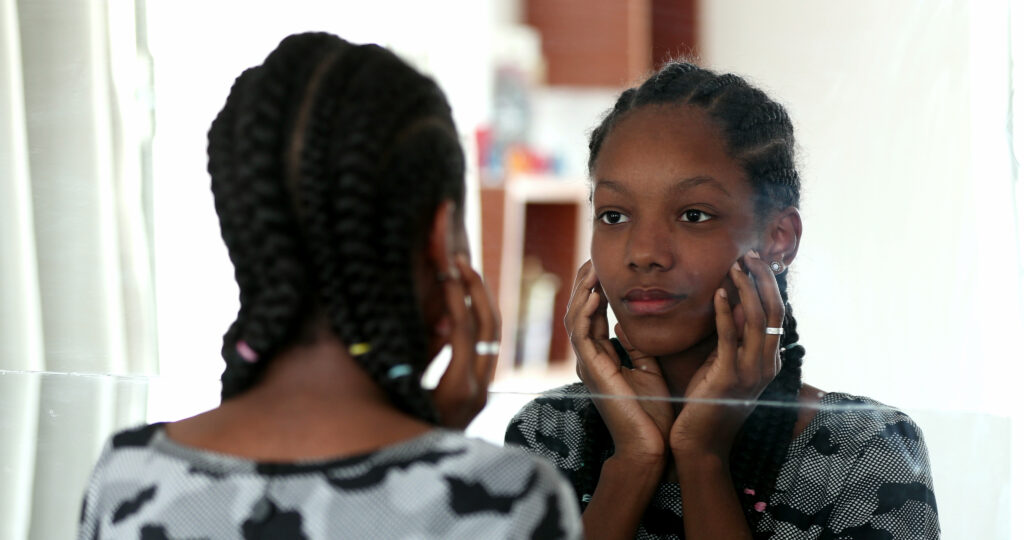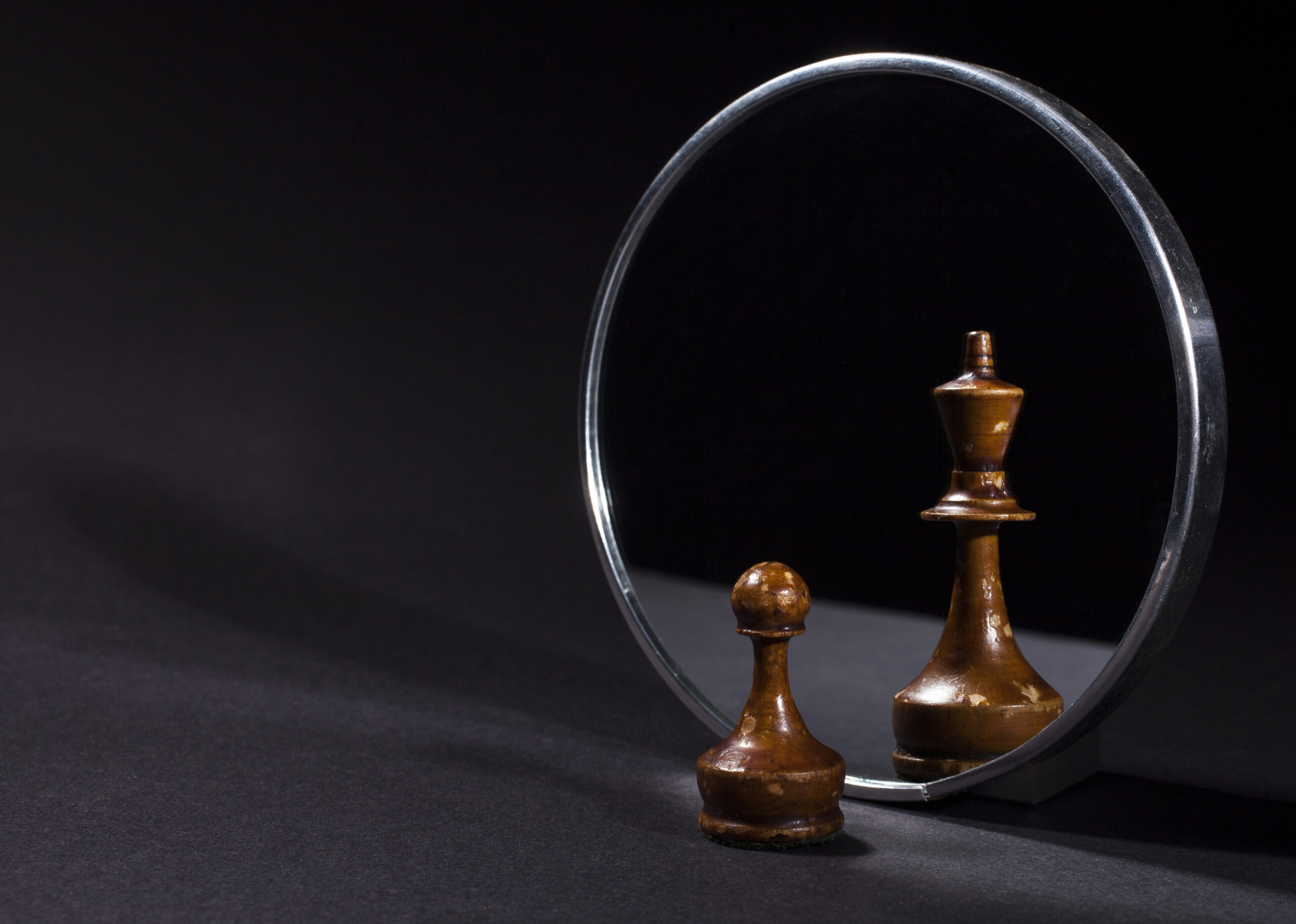People’s mental health has never been more fragile than it is right now. It seems like the pandemic left behind more than inflation. People live in a time where the more connected they are to their device, the less human interaction they have.
The term “looking-glass self-theory” was coined by American sociologist Charles Horton Cooley in 1902 and is described as a process that involves:
• Imagining how you appear to others
• Imagining how others judge your appearance
• Developing feelings about and responding to those perceived judgments
The theory suggests that self-concept is built in social settings, rather than in solitude. It is called the looking-glass self because a person’s identity is perceived as a reflection of other people’s perceptions, much like a mirror.
The looking-glass self-theory can affect self-esteem in either a negative or positive way. For example, a person’s self-esteem may increase if they continuously believe others perceive them in a positive manner.
This has become a problem in modern society because there is so much false information on the internet. The false information, coupled with a lack of human contact, can affect anyone who is vulnerable to public perception as they might develop a negative attitude towards themselves.

The looking-glass self-theory can hugely impact children. Children develop a perception of self through interactions with other people. Children often will take the feedback they get from others to develop their own concept of self. This fragile stage in development has typically protected the positive reinforcement of the parents.
However, with children gaining access to social media earlier and earlier in life, they are susceptible to developing negative feelings about themselves before they’re able to differentiate between their sense of self and others’ possible perceptions of them.
Experts warn that social media can keep kids from their studies, disrupt their sleep, sour their mood, and erode self-esteem. Recent research shows that adolescents who use social media for more than three hours per day face double the risk of depression and anxiety symptoms.
“As we see our face, figure, and dress in the glass and are interested in them because they’re ours … so in imagination, we perceive in another’s mind some thought of our appearance, manner, aims, deeds, character, friends, and so on, and are variously affected by it,” (1902; McIntyre, 1998).
According to Cooley (1902), the human mind is social and mental. This means that the mental processes occurring in the human mind are the direct result of social interaction.
But what if there is no social interaction? Today, people isolate themselves more than ever before. The internet has allowed society to have as little connection as possible if so desired.
Remote work, meal delivery, internet banking, and video conferencing have created the ability for people to never interact on an intimate level. With isolation comes a rabbit hole of self-perception.
“I have a cousin who used to come to events. They used to return phone calls,” John from Dayton said. “But I have noticed that she has stopped almost all interactions with us and it’s concerning because she used to be way more outgoing.”
Dr. George Fraser, considered the be one of the originators of social networking, warns of the problem with self-isolation. “You’ll find that the average human talks to themselves way more than they ever will to other people,” Fraser said. “What we say to ourselves has the potential to be more harmful if we have a negative perception of ourselves. We must learn to be way more kind to ourselves today.”
Fraser teaches the art of networking to build business relationships, but he also adds that it also creates meaningful relationships with others. Those human interactions help build and stimulate mental health, as well as creating the kinds of social interactions needed for people to maintain a positive self-image.
When Cooley developed the looking-glass self-theory, he could not have imagined the concept that human interaction would be at an all-time low. And it’s not just interaction. Physical contact has also taken a hit.

TOUCH STARVATION
So, what does human physical contact have to do with looking-glass self-theory? Human physical contact contributes to how humans rationalize self-worth and coping skills. Lack of human touch can be detrimental to character development.
Touch starvation can happen anytime a person doesn’t get enough physical contact. It’s often seen in children in orphanages and older adults in hospitals.
Humans bond through physical touch. Skin is the largest organ in the human body and sends good and bad touch sensations to the brain. When we engage in pleasant touch, like a hug, our brain releases a hormone called oxytocin. This makes us feel good and firms up emotional and social bonds while lowering anxiety and fear.
When we don’t receive enough physical touch, it can lead to feelings of loneliness, stress, anxiety, and depression, as well as potential physiological changes like increased cortisol levels due to the body’s stress response. This can often negatively impact a person’s overall well-being and optimal immune system functioning. Lack of touch coupled with a poor perception of self, often leads to suicide.
Some of the warning signs of touch starvation are:
• feelings of loneliness and depression,
• decreased life satisfaction,
• fatigue,
• problems sleeping,
• stress, and
• anxiety.
This is especially problematic for those who suffer from attention-deficit/hyperactivity disorder (ADHD). Sensory overload is a feeling of anxiety that occurs when we experience too much sensory input. It’s a common feature of ADHD. Sensory processing disorder (SPD) can make it difficult for a person to function if they become overwhelmed by senses including touch or hearing.
And because so many people have been diagnosed with these disorders, the problem of lack of self-worth is quite common in society today. For those who choose to self-isolate, the problems only become worse over time.
Experts suggest that if you or someone you know struggles with poor self-esteem or have reduced their interaction with society that you check on them often and try to find ways to increase their exposure to human interaction and contact.
Other ways to increase touch are:
• Ask a friend to hold hands while you spend time together or go for a walk.
• Get a scrub at a Korean spa.
• Go to a Cuddle Party.
• Book a session with a professional cuddler.
• Lie under a weighted blanket or futon mattress.
• Set up a massage trade with a friend.
The looking-glass self-theory was intended to help make people aware of how they perceive themselves. Cooley understood the importance of knowing how humans process self-worth. Today, with the extra factors of the internet and self-isolation, it makes it even more important that humans practice self-love and maintain positive relationships, whether mental or physical.
A global wish is that the world becomes a nicer place to live in 2025. That wish starts in the mirror and how humans speak to and perceive themselves.


